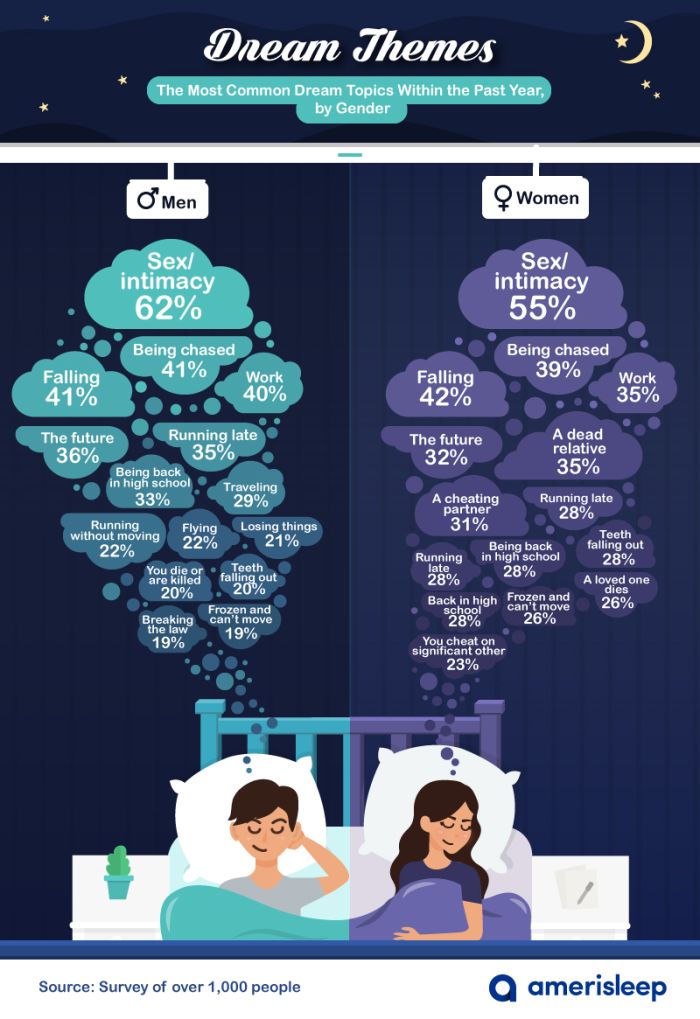A new survey has uncovered (sorry!) the similarities and the differences in the recurring dreams that men and women most often have.
There are many interpretations about the meanings of our dreams, of course. One leading theory is that they are the contents of our subconscious being processed by the brain as we sleep. In which case, the symbols we use would be highly personal to each individual dreamer.
Still, there are patterns in the things people most often dream about – and some differences between genders. The folks over at Amerisleep, an online mattress company (so they had an interest in how people sleep), recently surveyed over a thousand men and women to see how their dreams compared.
Most people have sex-themed dreams. The majority of men (62 per cent) and women (55 per cent) say that their most common recurring dreams are related to sex.
The next most common dream for both men and women is about falling. Nearly half of all people surveyed (41 per cent) say that the have dreams in which they are falling. A similar amount (40 per cent) also have recurring dreams in which they are being chased.
While more than a third (35 per cent) of women surveyed said that they had a nightmare about a relative dying within the past year, this dream wasn’t reported at all by the male participants. Men were much more likely (also 35 per cent) to have a stressful dream about running late.
Women were 8 percent more likely to dream about their teeth falling out. This has been interpreted as both a fear of aging and a regret over words spoken that cannot be taken back. (But again, symbols are personal. The same imagery can represent different fears to different people.)
One-fifth (19 per cent) of men dreamt of breaking the law. Men are also more likely than women to dream that they are back in high school and to dream of running without being able to move.
Twenty-four per cent of women dream that their partners are cheating on them, compared with only half as many (12 per cent) of men. (Women were also more likely to dream that they were the ones doing the cheating.)
On the other hand, men say that they dream that they are flying than women.
Here is a visual look at some of the most common recurring dreams of men and women:

Women say that they put more stock in the significance of their dreams than men do and are much more likely to try to interpret their meaning.
Want better dreams? Sleep more. People who say that they only got five hours of sleep or fewer were 20 per cent more likely to have nightmares most nights than those who got more sleep.
See the complete infographic and survey results from Amerisleep.


